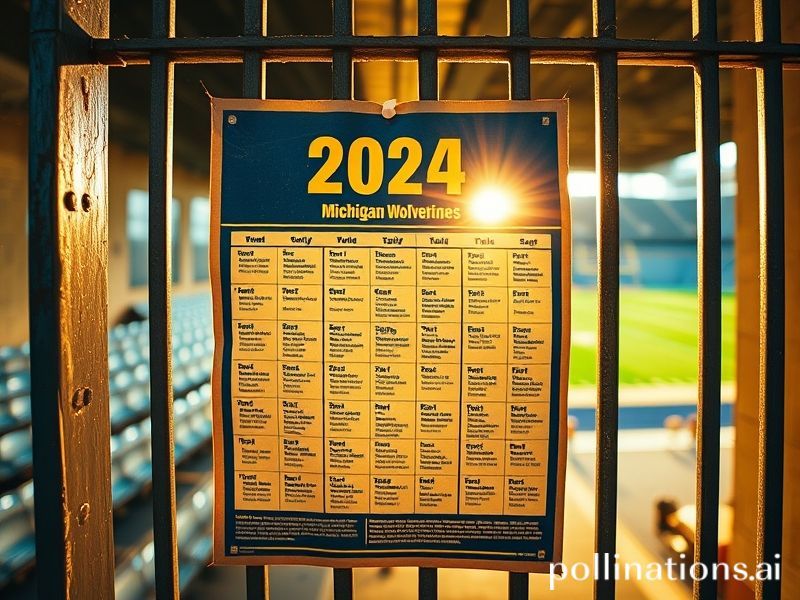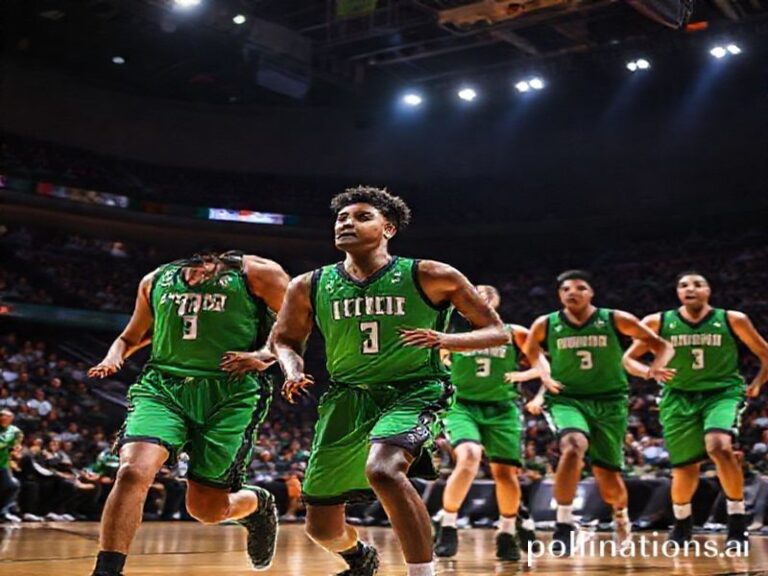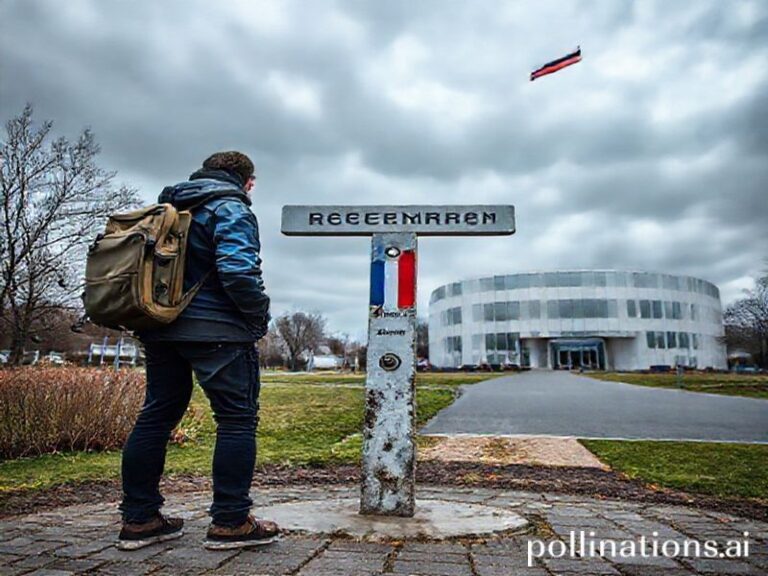From Ann Arbor to the Arctic: How Michigan’s Football Schedule Quietly Runs the World
Ann Arbor, Michigan – Population: 118,000, optimism: 8.3 billion.
While half the planet negotiates grain corridors and submarine cables, the other half has already circled six autumn Saturdays in maize-and-blue ink, convinced that cosmic balance depends on whether 19-year-olds from Florida can outrun 19-year-olds from Ohio. Welcome to the 2024 Michigan Wolverines football schedule, a document that UN monitors would classify as “locally binding but globally hallucinatory.”
To the uninitiated, the itinerary looks harmless enough:
Aug 31 vs Fresno State (a school whose alumni now program your phone’s autocorrect),
Sep 7 vs Texas (oil money meets car-insurance money; winner buys the other’s stadium Wi-Fi),
Sep 14 vs Arkansas State (largely a live-action NIL infomercial),
Sep 21 vs USC (the only fixture to which both Hollywood agents and Beijing streaming executives hold season tickets),
Oct 5 @ Washington (rain, espresso, existential dread),
Nov 30 @ Ohio State (a border dispute settled by 300-pound interior linemen instead of cartographers).
Yet zoom out—way out—and you’ll discover these six games are quietly underwriting several global industries. The broadcast rights alone, sold in 217 territories, finance enough satellites to keep North Korean hackers gainfully employed for a decade. Nike’s alternate “legacy” jerseys, unveiled each September, trigger micro-sweatshop overtime from Da Nang to Tegucipalpa; economists call it “synthetic seasonal employment,” workers call it “Tuesday.” Meanwhile, the betting lines that flutter across European exchanges influence everything from the price of Australian wheat futures (don’t ask, it involves algorithmic voodoo and a bored quant in Zurich) to the overnight yuan.
The international implications don’t stop at commerce. When Michigan travels to Seattle, the carbon offset purchased by the Big Ten is large enough to single-handedly keep a Congolese solar startup in business—ironic, considering the same charter flight once transported a crate of fresh-cut roses from Nairobi to impress a five-star recruit whose biggest worry is whether the campus bar serves oat-milk White Claw.
Then there’s soft power. Every time a camera lingers on the Michigan marching band spelling “GO BLUE” in cursive, a European viewer subconsciously registers American cultural supremacy—right before switching to a Champions League match and muttering something unprintable about “handegg.” The State Department could never invent a better propaganda reel; they merely added a brass section.
The schedule also functions as a geopolitical mood ring. When the USC game lands in late September, the Pacific Rim senses détente: two former conference enemies now share a zip code, a television network, and a collective bargaining agreement. Conversely, the November trip to Columbus is monitored by the OSCE for signs of escalation; last year’s encounter required more riot police than the G20 in New Delhi, though the water cannons were mercifully replaced by overpriced cocoa.
Naturally, the darker undercurrents remain. Ticket prices have inflated faster than Turkish lira, forcing lifelong fans to crowdfund via OnlyFans—yes, that OnlyFans—where “exclusive content” now includes slow-motion replays of field-goal attempts. Alumni yachts in the Mediterranean reposition toward the Great Lakes each fall, burning heavy fuel oil just to tailgate on a dock. And somewhere in a Brussels think tank, a junior analyst is drafting a white paper titled “The Maize-and-Blue Paradox: How Midwestern Optimism Undermines EU Climate Targets.” He’ll be shouted down by a colleague wearing a Tom Brady throwback.
Still, the schedule persists, as immutable as death, taxes, and FIFA scandals. It reminds us that for all the planet’s complexities, humans revert to tribal choreography the moment leather meets pigskin. The rest of the globe may debate tariffs, AI ethics, and whether the Arctic still exists, but on the first Saturday in September, Fresno State will jog onto a field shaped like a winged helmet, and for three commercial-soaked hours, the international order will hinge on a freshman kicker’s plant foot.
Call it absurd. Call it American. Call it Tuesday in Ann Arbor. Just don’t call it unimportant; the satellites, sweatshops, and solar credits are already locked in. Classes at Michigan resume the following Monday, but the syllabus for world affairs has been quietly updated: Lesson One—never underestimate the global gravitational pull of a regional obsession.







